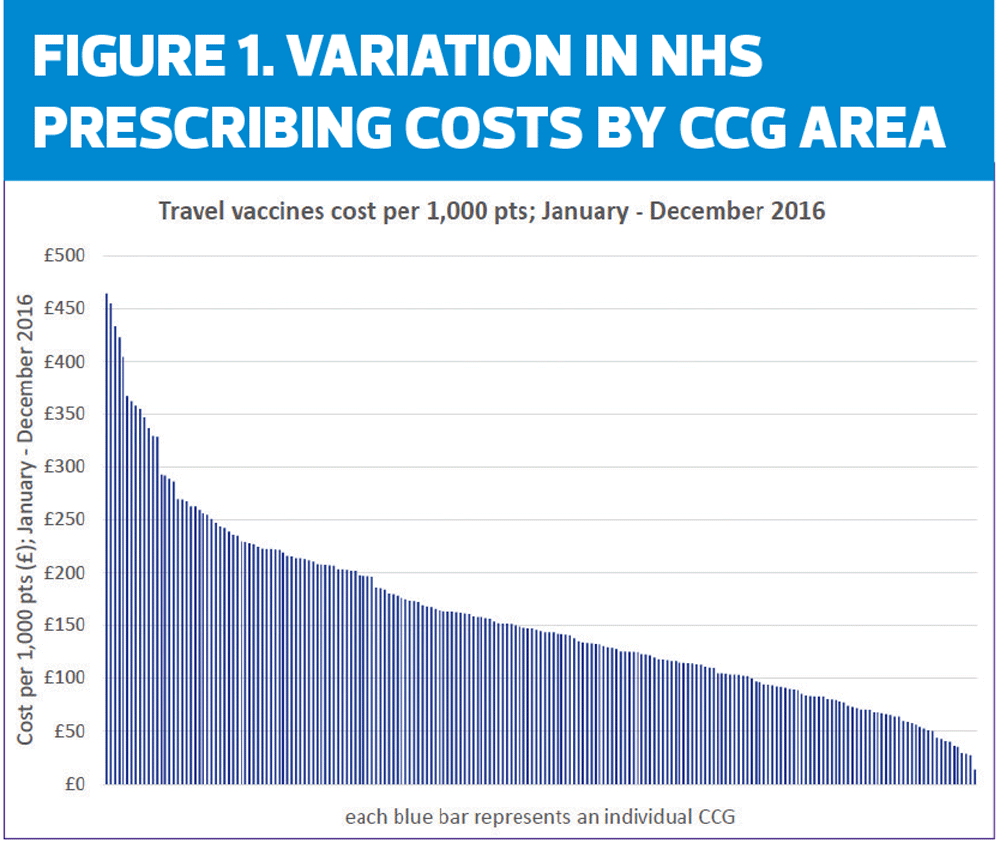Travel health update
Jane Chiodini
Jane Chiodini
MSc(Travel Med), RGN, RM, FFTM
RCPS(Glasg), QN
Founder and Director of Travel Health Training
www.janechiodini.co.uk
www.facebook.com/TravelHealthTraining
This month Jane Chiodini flags up the NHS England consultation that could see many travel vaccines removed from NHS provision – but which should provide much needed clarification in what is currently a complex and confusing arena
At the end of March this year, we learned that NHS England was proposing to ban general pratice prescribing of a number of medicines which were deemed to be of low priority. Within this list was the suggestion about travel vaccines (hepatitis A, typhoid, polio and cholera), which apparently account to expenditure of £9.5 million. The news came as a shock, and worrying anecdotes of some practices deciding not to undertake, and of CCGs advising some to stop travel services, came to light.
Subsequently, on 21 July, NHS England launched an action plan to drive out wasteful and ineffective drug prescriptions, saving the NHS over £190 million a year. A consultation document has now been published detailing a list of items that should not be routinely prescribed in primary care – available at https://www.engage.england.nhs.uk/consultation/items-routinely-prescribed/ . This link also provides a useful FAQ document.
The proposals on travel vaccines were not what I was expecting from the news in March. The document explains that some vaccines, which can be given for prevention of illness in other circumstances are being inappropriately administered for the purposes of travel, for which they are not available on the NHS.
NHS Digital reported that over £4.5 million was spent but only some of this total will be for the purpose of travel. This figure seems adrift from the original estimate given March.
The consultation document considers that hepatitis B, Japanaese encephalitis, meningitis ACWY, yellow fever, tick-borne encephalitis, rabies and BCG are clinically effective but, due to the purpose of use, are a low priority for NHS funding. This should not cause too much concern since our travellers are used to paying for most of these these vaccines anyway.
One of the key themes of the document was to give regard to the need to reduce inequalities between patients’ access to, and outcomes from healthcare services. At present we certainly have health inequality for some travel vaccines. If we get clarification that hepatitis B and meningitis ACWY must now be private, this will end great confusion. Current guidance says these vaccines for the purpose of travel may be charged for, and as a result there is great variation in practice, with some charging and some providing vaccines on the NHS (Figure 1).
Interestingly, the NHS travel vaccines cholera, diphtheria/tetanus/polio, hepatitis A and typhoid are not included in the consultation document, but NHSE has asked Public Health England to conduct a review of travel vaccines currently available on the NHS to assess their appropriateness for future NHS prescribing. The FAQ document also adds that any proposed changes will require a change of regulations and an assessment of public health impact.
The consultation is open for comments until 21 October and then the joint clinical working group will consider the feedback and produce a final list of recommendations for consideration by NHSE and NHS Clinical Commissioners to update the proposed commissioning guidance for items which should not be routinely prescribed in primary care.
At a time when the world is heavily committed to eradicating polio, it will be interesting to see what happens overall. But for now, until we hear further, I think it is ‘business as usual’ and we must continue to provide a travel service in primary care, unless the practice has formally opted out. See janechiodini.co.uk/news/faqs/faq-3/ for more details. Nothing was mentioned for the use of combination hepatitis A+B vaccines which are the main cause of confusion regarding provision of hepatitis B to our travellers – a practice many CCGs have banned – but vaccines which have come increasingly into use with the hepatitis A and B vaccine shortages and dose sparing guidance! I sense there are going to be no ‘quick fixes’ and travel health in primary care will continue to present many challenges for a while yet.
BREAKING NEWS
Guidance on ZIKA Virus (ZIKV) infection has been revised to include ratings for areas at greatest risk of ZIKV, and to focus messaging on the sexual transmission of ZIKV on pregnant women, their partners and, importantly, couples planning pregnancy. This will ensure that the advice on the use of barrier measures (e.g. condoms) and avoiding conception is targeted to those for whom the implications of sexual transmission of ZIKV are greatest. Read more online and at travelhealthpro.org.uk/news/4/zika-virus--update-and-advice-for-travellers
